The best home security cameras and best video doorbells are a great way of keeping an eye on your property when you’re not around, as well as ensuring you never miss a delivery if you’re not at home.
So, it’s no surprise they’ve rocketed in popularity - according to market research firm Statistica, the global smart home security market is forecast to grow by $5 billion to be worth $7.49 billion by 2025.
Ring, which is owned by Amazon, and Arlo are two of the biggest names dominating the home security market right now, and if you’re considering kitting your home out with security cameras and doorbells, it makes sense to plump for one of these brands.
However, it can be hard to decide which is best suited to you, so we’ve tested a range of devices from both brands to give you the low-down.
What is a home security system?
A home security system is a mix of security cameras and video doorbells on the exterior, and sometimes inside, your home. They let you see and speak to anyone in your property via an app on your smartphone or tablet.
How do you use it?
You can view the camera’s live feed in real-time through your smartphone or tablet. The built-in speaker and microphone also enable you to hear and speak to people and pets in your home.
As well as providing the ability to view a live feed whenever you like, a home security camera will also send an alert if it detects motion in your home, so you can respond as soon as you see it.
Do I need a subscription?
You can use both the Arlo and Ring indoor cameras without a subscription, but you won’t be able to go back at a later date and view footage recorded by the camera.
The subscription service provides access to a secure area online where this video is stored. As such, in order to get the most out of the home security camera, it’s worth paying for the subscription.
Best Ring and Arlo deals
Read on to discover how these two home security camera systems compare – or, if you’ve already decided which of the two you wish to buy, check out the best prices right now for home security cameras and video doorbells :
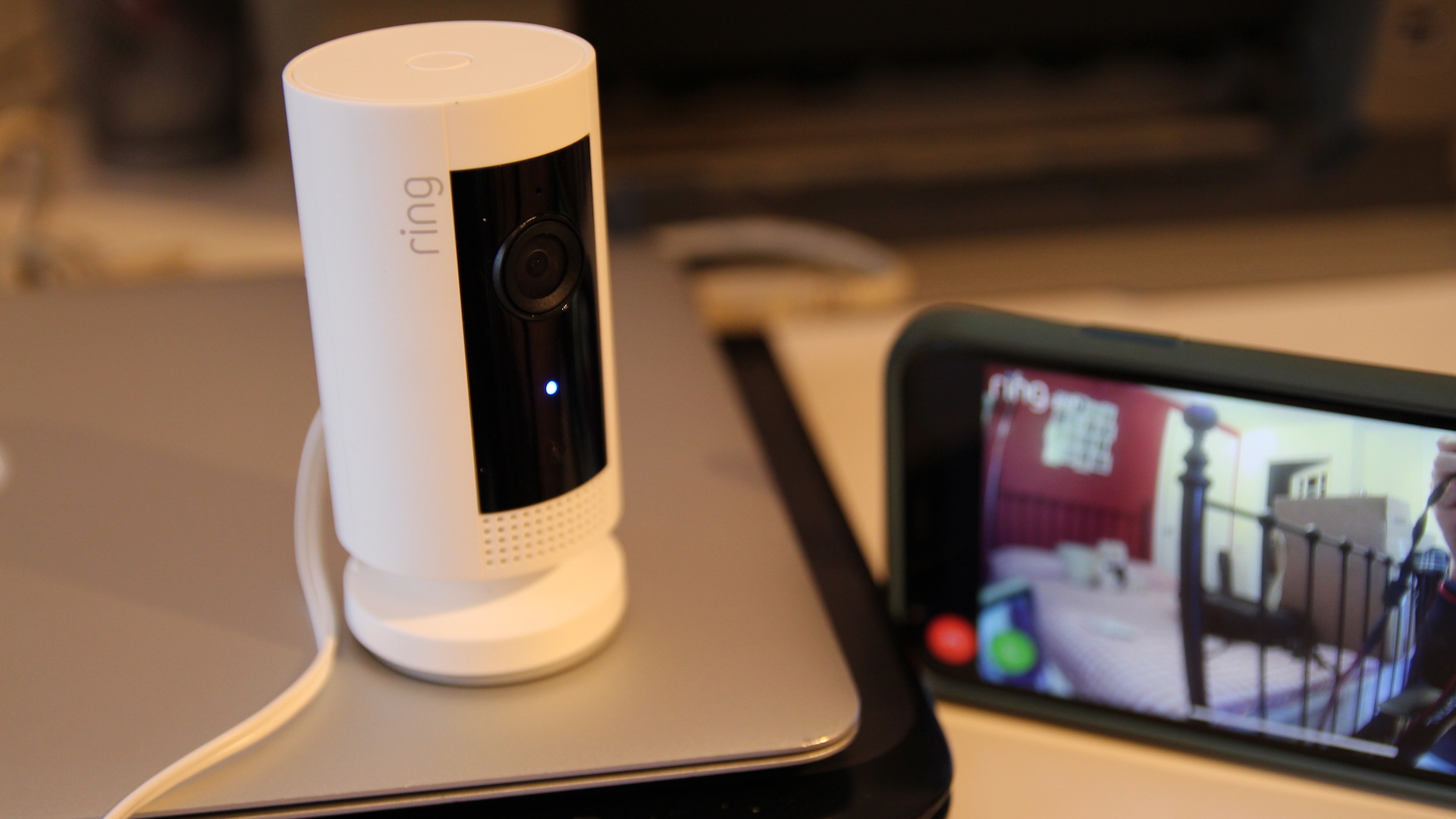
Range
When it comes to the number of different cameras and video doorbells available from Ring and Arlo, both brands offer plenty of choice. So buckle up and we’ll give you an overview of what’s available - spoiler alert, the choice is vast.
Arlo’s top-of-the-range home security cameras are powered by removable rechargeable batteries and are weather-proof so they can be used indoors or outside, although most of them require a base station. This sits inside your home and connects to the internet over Ethernet, and provides a dedicated Wi-Fi network for the cameras to connect to.
The Arlo Pro 2 records in color Full HD during the day and black-and-white Full HD video at night, while the Arlo Pro 3 has a resolution of 2K and a built-in spotlight for color footage both during the day and at night.
There’s also the Arlo Pro 3 Floodlight, which acts as a security light to illuminate when motion is detected as well as recording footage.
The Arlo Pro 4, which is currently only available in the US and Australia, offers all the benefits of the Arlo Pro but doesn’t require a base station to connect to Wi-Fi.
The Arlo Ultra records in 4K, and has the same spotlight as the Arlo Pro 3 and 4, while the Arlo Ultra 2 builds on this as it doesn’t require a base station either.
You’re still with us right? Good, because we’ve not finished, just yet. Arlo also offers three cameras in its Essential range, which is a more affordable range of FullHD cameras that don’t require a base station.
The Arlo Essential Spotlight and Arlo Essential XL Spotlight are battery-powered (the XL version battery lasts up to one year between charges compared to the sim months offered by the Essential Spotlight) and can be used indoors or outside.
The Essentials indoor camera is an affordable wired device designed for inside the home, and comes with a privacy shutter to offer peace of mind to those that worry their every move is being watched. On top of that, the Arlo Go is a Full HD battery-powered security camera that connects to mobile data rather than Wi-Fi - making it good for areas your home network doesn’t reach.
Arlo also has two video doorbells that records footage in a resolution of 1536p and in a 1:1 aspect ratio so you can see the full length of someone on your doorstep - the only difference between the two is the way they are powered; the Arlo Video Doorbell is wired, while the Arlo Essential Video Doorbell Wire Free uses a rechargeable battery.
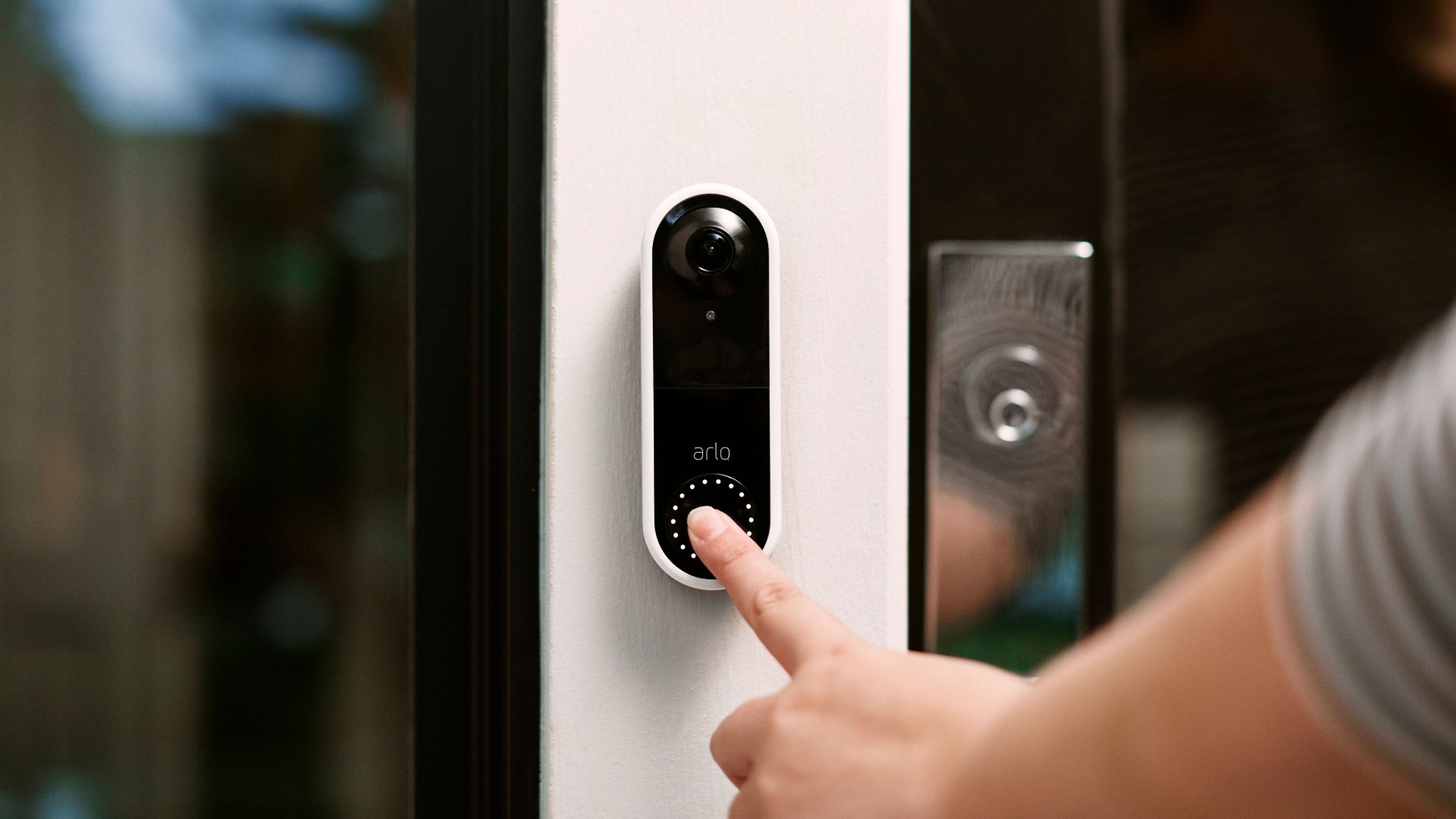
Ring launched as a video doorbell maker, so its range of doorbells is understandably wider than its line of home security cameras..
Ring offers five video doorbells in total; the Ring Elite (a professionally-installed wired doorbell that uses Ethernet rather than Wi-Fi) and the Ring Video Doorbell Pro 2, is mains powered and records FullHD video, in a 1:1 aspect that’s identical to Arlo’s video doorbells… but doesn’t actually need to be professionally installed.
These are joined by the new Ring Video Doorbell 4, which can be battery operated or mains powered. It records in Color Full HD but doesn’t have the 1:1 aspect ratio of the Video Doorbell Pro 2.
TheRing Video Doorbell (2nd generation) bringsa slightly narrower field of view than the Video Doorbell 4, so you won’t be able to see as much of the image from the camera, and the battery is built-in rather than removable - meaning you have to remove the doorbell completely to charge it. Finally, Ring’s most affordable option is the Ring Video Doorbell Wired - a hard wired version of the Ring Video Doorbell (2nd generation) .
If you’re looking for a bargain, the Ring Video Doorbell Pro and Ring Video Doorbell 3 are predecessors to two of the current Ring Video Doorbells, and are currently still available - although stocks won’t last forever.
In terms of security cameras; Ring offers the entry-level Indoor Cam, which is mains powered, records in color Full HD and comes with a 140 degree field of view.
Next up is the Stick Up Cam, which comes in battery- or mains-powered versions and can be used indoors as well as outside.
Again it records in color Full HD with the same field of view, and it also has a flexible mount so it can be positioned in different angles and even mounted from the ceiling.
Ring Spotlight Cam is another outdoor security camera that takes the Stick Up Cam’s spotlight and uses it to illuminate when motion is detected, while the Ring Floodlight Cam has two 1,000 lumen floodlights (the average ceiling light is around 800 lumens) instead of a single spotlight.
The newer Ring Floodlight Cam Pro is also available to pre-order and builds on its predecessor with a sleeker look and some handy laser-based motion detection features also found on the Ring Video Doorbell Pro 2 that should help reduce unwanted activity alerts.
Ring also offers something Arlo doesn’t - a smart alarm system that includes door/window sensors, motion-detection PIRs and even an optional outdoor siren and an assisted monitoring that will automatically call three emergency contacts if the alarm is triggered.
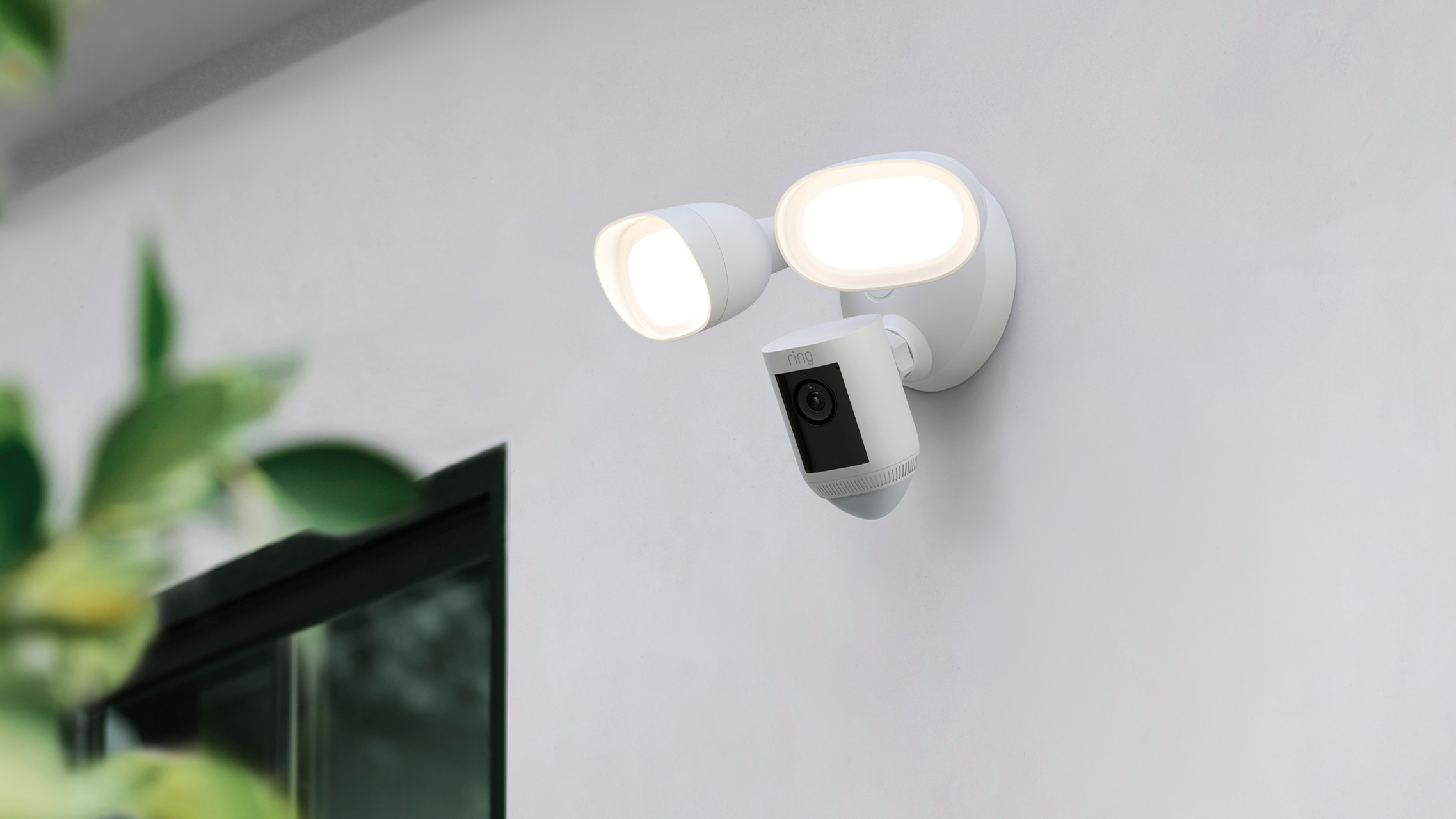
Price
So just how much will you have to lay out for this plethora of home security devices? Ring’s cameras are slightly more affordable than Arlo’s offering.
Its cheapest home security camera is the Ring Indoor Cam, which costs $59.99 / £49 / AU$99, while you can pick up an outdoor camera, the Ring Stick-up cam, for $99.99 / £89 / AU$179.
It’s latest wired video doorbell, the Ring Video Doorbell Pro 2, will set you back $249.99 / £219 / AU$399.99 and it’s current battery-powered video doorbell, the Ring Video Doorbell 4, is priced at $199.99 / £179 / AU$329.
When it comes to Arlo, its most affordable security camera is the Arlo Essential Indoor Camera, which will cost you $99 / £119.99 (around AU$180 although it's not currently available in Australia), while weatherproof cameras that can be used outside start from $99 / £119.99 / AU$229 for the Arlo Essential Spotlight camera.
Meanwhile, the wired doorbell is priced at $149.99 / £179.99/ AU$289.99, while the battery-operated version, which is identical in everything apart from the way it's powered, is priced at $199.99 / £179.99 / AU$329.
All of these home security cameras and video doorbells are often discounted during the year too, for example on Black Friday we saw the Ring Video Doorbell Pro drop as low as $139 / £119 / AU$175 from it’s list price of $169 / £219 / AU$399.
Similarly, the Arlo Ultra two-camera kit has been discounted to almost half price - taking it as low as $440 / £309 / AU$699.
With Amazon Prime Day 2021 just around the corner in June, if you can hang on before buying, there will almost certainly be some hefty savings to be had on the Ring devices through Amazon and other retailers due to the Ring doorbells being owned by Amazon itself.
We’d expect some Arlo devices to be discounted too, which could net you some substantial savings.
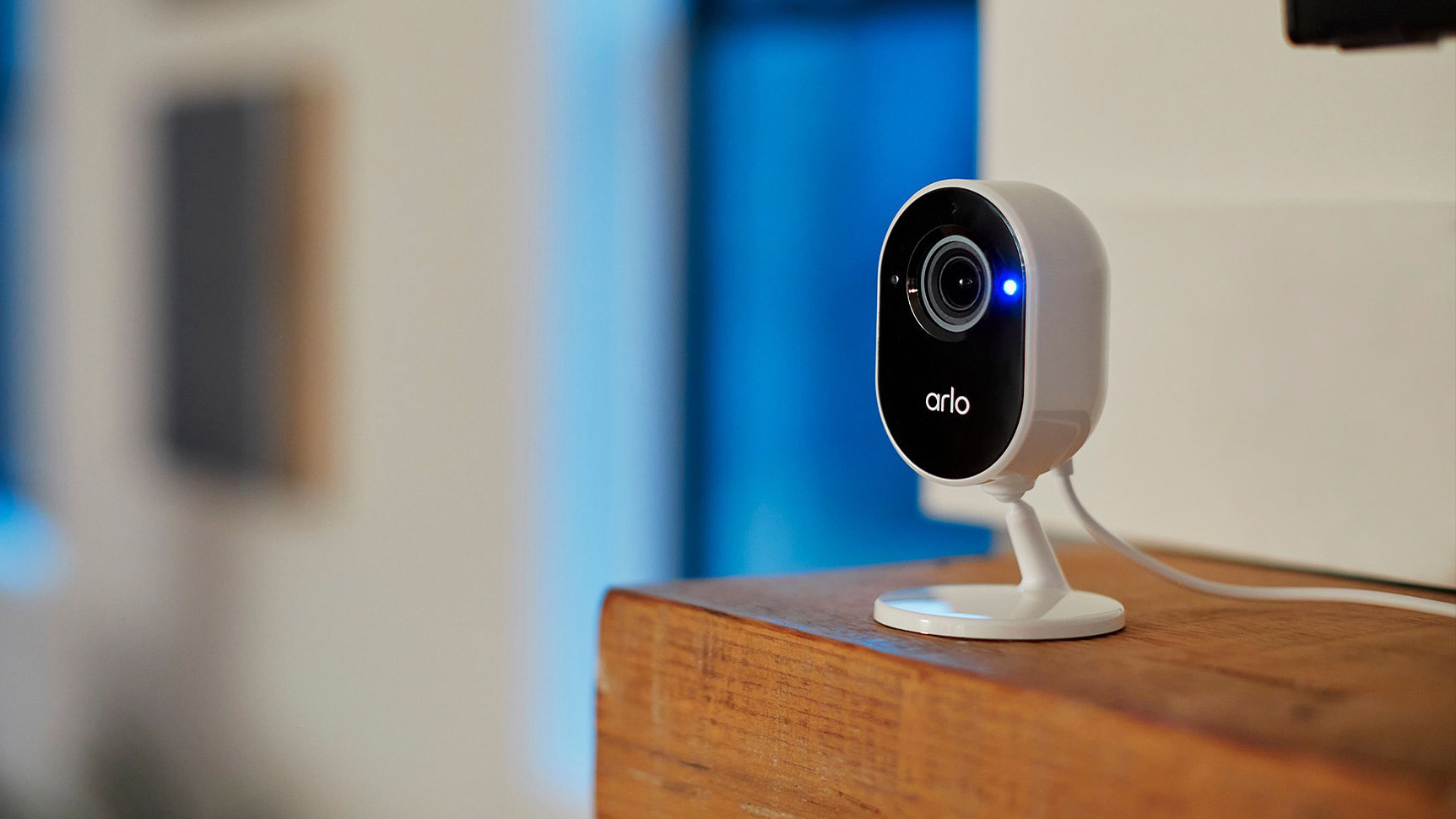
Subscription cost
To get the most out of both security cameras systems you will need to subscribe to the brand’s monthly plans; as these allow you to review footage recorded by the cameras and doorbells at a later date, as well as offer access to smart features that help reduce the number of unwanted notifications. If you choose not to subscribe, you’ll still get alerts about motion detected by the cameras and you’ll be able to log-in and view the live feed, but you won’t won’t be able to store videos so you can view after they’ve been recorded.
Arlo Smart costs $2.99 / £2.49 / AU$4.49 per month per camera if you want to store footage in up to 2k. Alternatively it’s priced at $9.99 / £7.99 / AU$14.99 per month for up to five cameras.
To store footage recorded in 4K (only the Arlo Ultra and Ultra 2 can record at this resolution at present) it costs $4.99/ £3.99 / AU$7.49 per camera per month or $14.99 / £12.49 / AU$ 21.99 per month for up to five cameras.
All four options store video for up to 30 days, and can identify whether motion detected has been caused by a person, animal or vehicle. A three-month free trial is included with most new cameras.
If you purchase some of Arlo’s older home security cameras such as the original Arlo, Arlo Pro or Arlo Pro 2, these include seven days of cloud recording free of charge, although you will need the premium Arlo Smart service if you want to review the video for up to 30 days after it’s been recorded, or want the source of the motion to be identified.
Ring Protect is similarly priced at $3 / £2.50 /AU$4 per month for one camera or $10 / £8 / AU$15 for an unlimited number of cameras and offers 30 days of video storage, as well as People Only mode that will reduce unwanted motion alerts, discounting those caused by animals or wind rustling through the trees.
Again, most new Ring devices come with a 30-day free trial of Ring Protect.
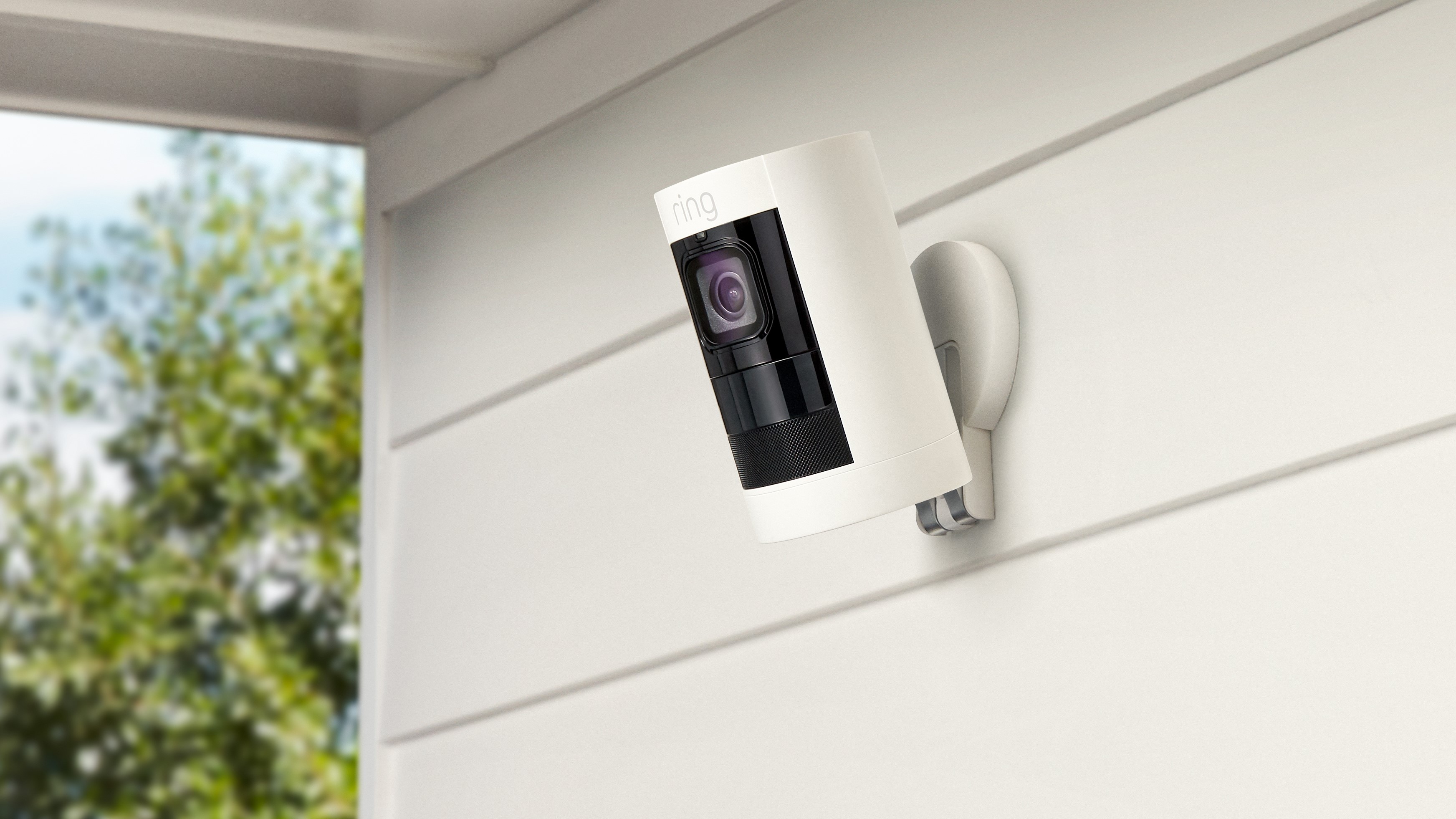
Video and audio
When it comes to the quality of the audio and video of the Ring and Arlo security cameras, they’re generally evenly matched.
We’ve reviewed the majority of the products offered by both brands, and in our tests the video has always been clear and detailed, while the audio has always been extremely coherent.
There are a couple of reasons Arlo’s video and audio capture slightly trumps Ring in our eyes; one being that some cameras can record in 2K and 4K resolution.
These are ideal if you want to mount the camera at a high level to ensure it captures a wider area without losing details in the video.
The second is the inclusion of spotlights in several of the cameras to provide color footage at night as well as during the day - Ring only offers this on two of its cameras, and the design is pretty bulky, whereas Arlo retains the compact size while still including the light.
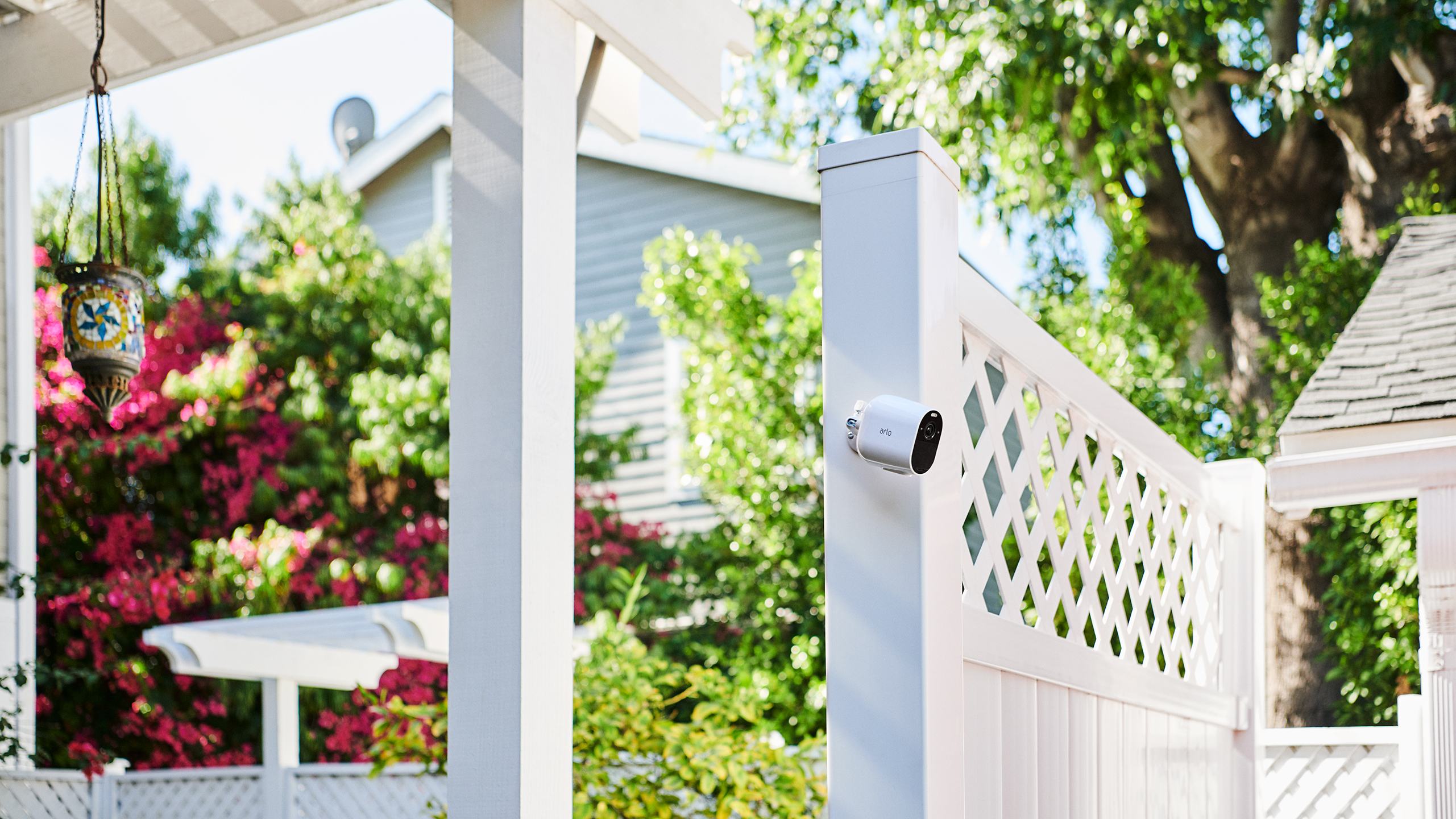
App
Both Ring and Arlo have apps that are simple to navigate and provide a way to view the camera and doorbell’s feed in real time, while also review footage previously captured, providing you have subscribed to the relevant monthly service.
Both platforms also provide rich notifications with a snapshot of an activity detected to your smartphone too - so you can quickly see if it’s an alert you need to worry about or not.
In the US Ring also offers the Neighbors feature through its app, which alerts you about crimes within 5 miles of your property.
It’s worth noting that all but two US states have their police and fire departments working with Ring and through this feature can request footage to use as part of their investigation.
Ring states that these departments can’t access live-feeds or recordings automatically, it’s up to device owners if they decide to share the footage, and personal information about the owner won’t be shared either, but it’s worth noting that you could have requests made if you open up the option.
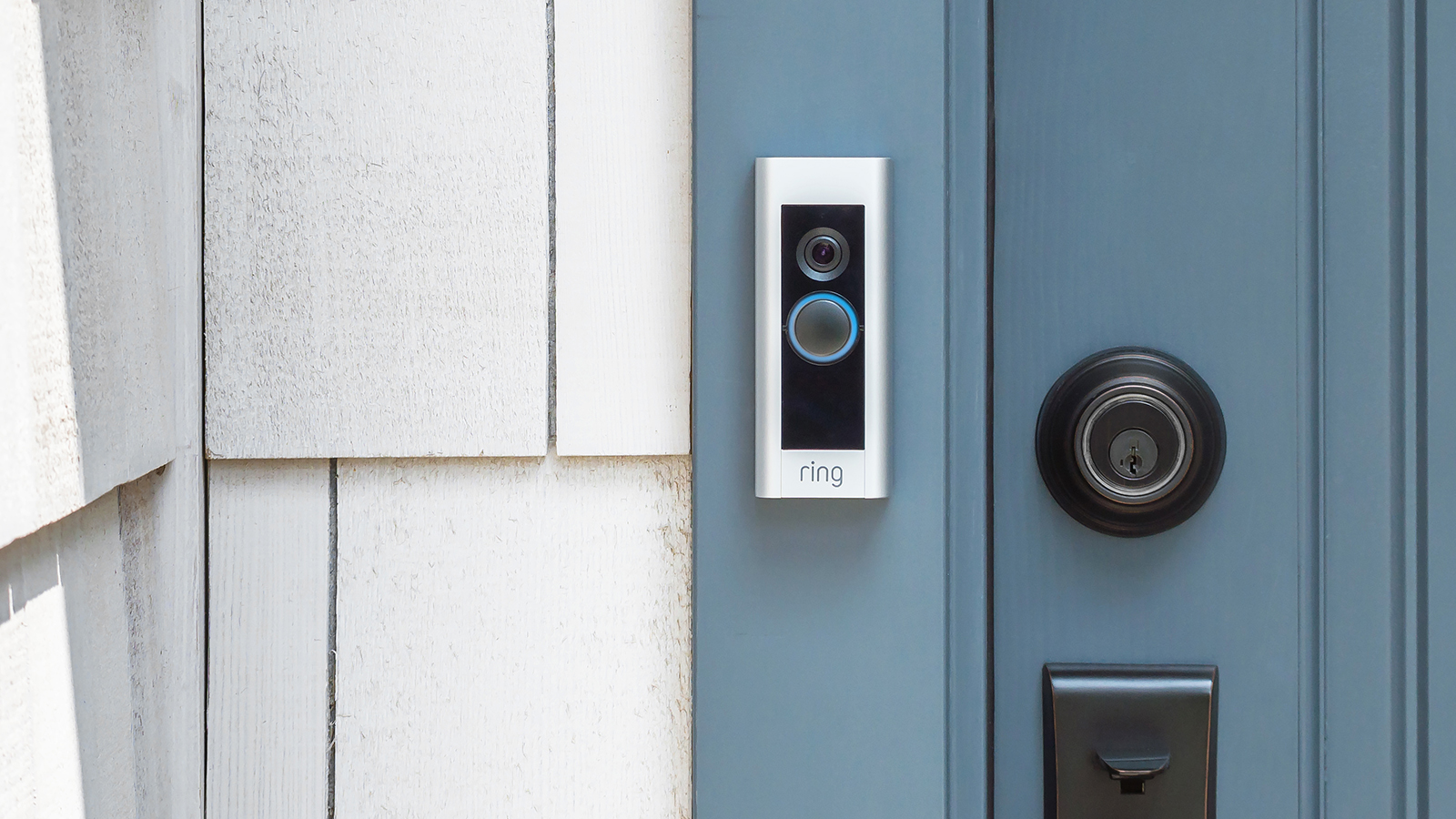
Smart home integration
Both Arlo and Ring cameras and doorbells will integrate with voice assistants, so you can use the best smart speakers to converse with anyone in the camera’s field of view and see a live feed from the camera through the best smart displays.
Arlo is the clear favorite here, as all of the home security cameras and video doorbells integrate with Amazon Alexa and Google Assistant, while some of their devices also offer Apple HomeKit integration, and further support of Apple’s system is being rolled out in the future to some of the new products, such as the Arlo Video Doorbell.
Ring’s cameras and video doorbells are only compatible with Alexa, which isn’t surprising considering the company was purchased by Amazon in 2018. If you’ve got Alexa inside your home, then Ring devices will be an obvious choice.
Verdict
From our tests, it's clear that Ring and Arlo are both effective and easy to use home security camera systems. Ring has a more rounded security offering, thanks to the smart alarm and assisted monitoring service, which is good if you want an alarm system that ties into your cameras and video doorbells.
Meanwhile Arlo offers more flexibility on where cameras can be positioned, thanks to the combination of magnetic mounts and battery power, you can easily move their location in seconds. Arlo’s products offer a higher resolution too.
If you already have smart speakers or smart displays in your home, these will also play a part in the decision about which brand to choose, as Ring is heavily integrated with Amazon Alexa while Arlo works with both Alexa and Google Assistant, and some of their devices even come with HomeKit support.
- Check out these great home security cameras deals
from TechRadar - All the latest technology news https://ift.tt/2SBawD0

0 coment�rios: